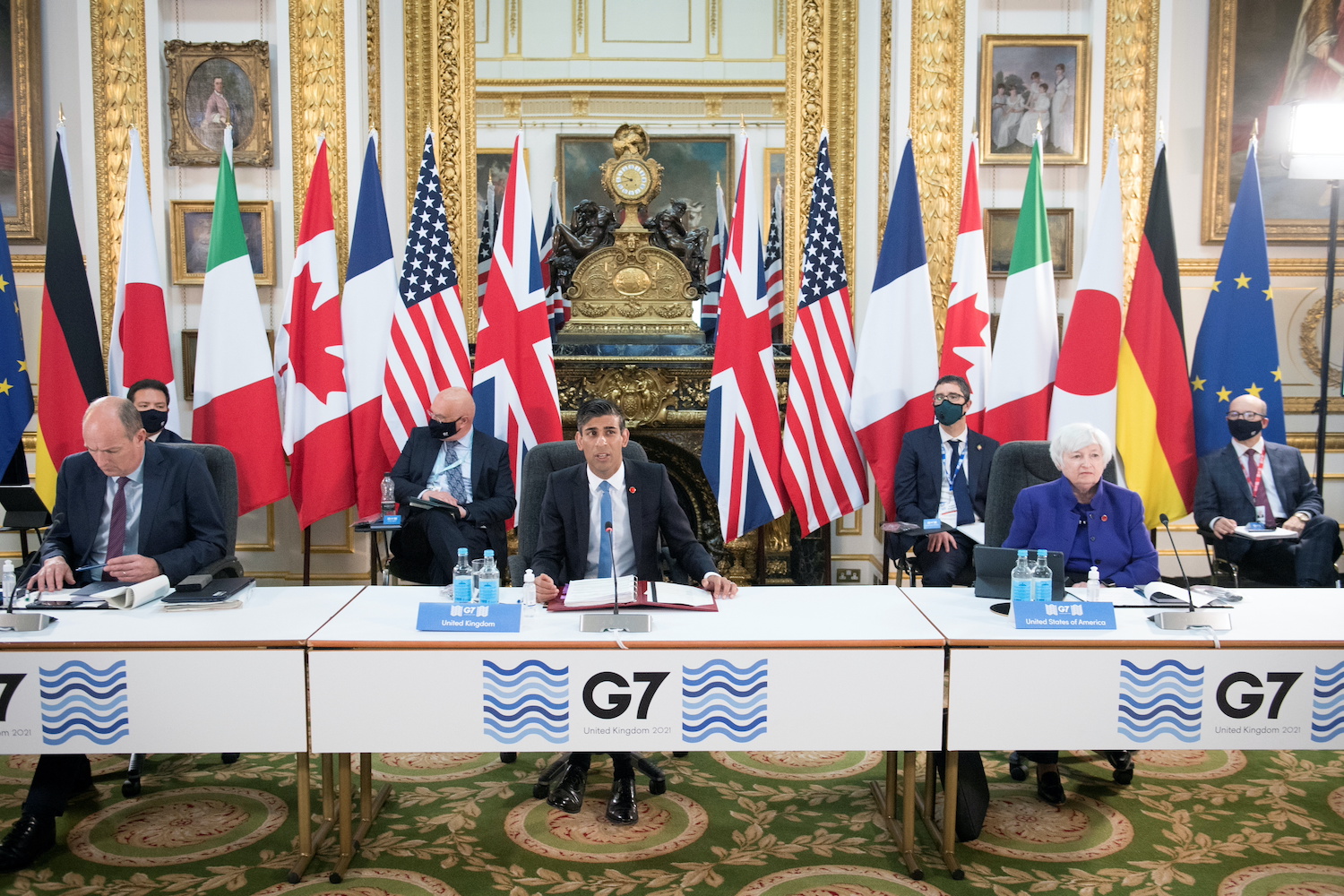Wealthy G7 nations reached a historic deal on Saturday to grab a greater amount of tax from multinational companies such as Facebook and Google, to reduce their incentive to shift profits to tax havens
(AF) Governments left cash-strapped by the coronavirus pandemic expect to see billions of dollars in tax revenue because of the agreement on a minimum global corporate tax rate of at least 15%.
British finance minister Rishi Sunak chaired two days of meetings on Friday and Saturday with counterparts from Canada, France, Germany, Italy, Japan and the United States.
“G7 finance ministers have reached a historic agreement to reform the global tax system to make it fit for the global digital age,” Sunak said afterwards.
The meeting was held in person after an easing of Covid restrictions, after US President Joe Biden’s administration gave fresh impetus to stalled global tax talks. Rich nations have struggled for years to agree on how to raise more tax from large multinationals such as Google, Amazon and Facebook, which often book profits in jurisdictions where they pay little or no tax.
Sunak, who has stressed the importance of face-to-face meetings for reaching agreement, told ministers earlier that the rest of the world was watching for progress.
“We cannot continue to rely on a tax system that was largely designed in the 1920s,” he said.
US Treasury Secretary Janet Yellen said the “significant, unprecedented commitment” would end what she called a race to the bottom on global taxation.
German finance minister Olaf Scholz said the deal was “bad news for tax havens around the world”.
Yellen saw the G7 meeting as a return to multilateralism under Biden and a contrast to the approach of former president Donald Trump, who alienated many US allies.
“What I’ve seen during my time at this G7 is deep collaboration and a desire to coordinate and address a much broader range of global problems,” she said.
Environmental impact disclosures
Ministers also agreed to move towards making companies declare their environmental impact in a more standard way so investors can decided more easily whether to fund them, a key goal for Britain.
“We support moving towards mandatory climate-related financial disclosures,” the ministers said in a statement released after two days of meetings, adding that this would “provide consistent and decision-useful information for market participants”.
The idea backed by all of the G7 would make it mandatory for all major companies to come clean on, for example, their carbon dioxide emissions – a crucial aspect of the transition towards cleaner energy.
Such regulations would help companies assess the financial impact of the climate crisis and make necessary changes as their countries set ambitious targets such as becoming carbon neutral by 2050.
It would also help investors who offer financing to large groups and take an ever closer interest in the impact of the climate on businesses, both in terms of performance and reputation.
EU nations to scrap digital services tax
Yellen said European countries would scrap existing digital services taxes which the United States says discriminate against US businesses as the new global rules go into effect.
“There is broad agreement that these two things go hand in hand,” she said.
Key details remain to be negotiated over the coming months. Saturday’s agreement says only “the largest and most profitable multinational enterprises” would be affected.
European countries had been concerned that this could exclude Amazon – which has lower profit margins than most tech companies – but Yellen said she expected it would be included.
How tax revenues will be split is not finalised either, and any deal will also need to pass the US Congress.
But any deal would need much wider global buy-in, at a meeting of the G-20 in Venice in July.
The US Treasury expects a fuller agreement when Biden and other heads of government meet in England on June 11-13.
‘15% too little’
But not everyone is happy with the outcome. The UK-based anti-poverty charity Oxfam said Biden’s proposal of 15% was too little.
“A rate of 15% would in our opinion be largely insufficient,” Oxfam France’s senior policy officer Quentin Parrinello told AFP. An agreement without any specific rate “would be a real failure”, he added.
Proponents argue that a minimum tax is necessary to stem competition between countries over who can offer multinationals the lowest rate. They say that a so-called hunt for countries with lower tax levels saps precious revenues that could go to government priorities like hospitals and schools.
With reporting by Reuters and AFP.
# This report was updated on June 6. 2021.
SEE ALSO:
US pushing G20 for global minimum corporate tax, Yellen says
Breakthrough on global tax deal aims to stop ‘race to the bottom’
























